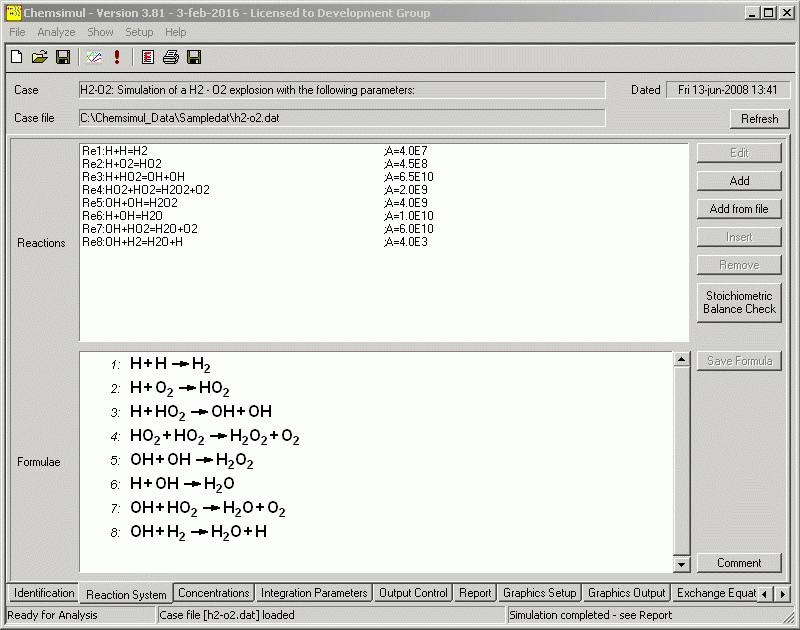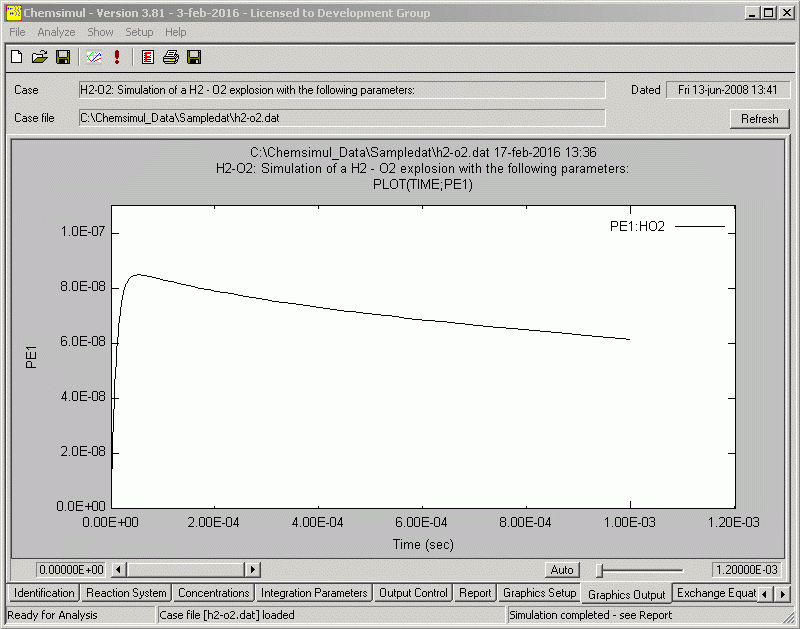

| DTU Risø Campus |

|
 |
|
OverviewCHEMSIMUL is a computer program for simulation of chemical kinetics. It can model complex reactions, in particular radiolytic processes with pulse trains, or radiolysis from nuclear waste. It contains a translator module and a module for solving the resulting coupled nonlinear ordinary differential equations. There is also a module for verifying the mass balance as well as stoichiometric balance. Heterogeneous processes can be simulated by so-called exchange equations. These and Refreshable Parameters are powerful tools for calculating many physico-chemical quantities, e.g. the ionic strength. Sequental simulation is possible if the reaction volume is exposed to changing physical conditions. The main computer platform for CHEMSIMUL is the Windows PC (XP or later).
CHEMSIMUL comes with a Graphical User Interface (GUI).
Comments, improvement suggestions, and error reportings are welcome and should be directed to the authors (chemsimul@risoe.dtu.dk). 

Outstanding features:
Tutorials and examples
Demo versionA free demonstration program called CHEMSIMUL_Demo,
which has restrictions on the number of reactions and species may be used without any license. CHEMSIMUL sample data filesA set of sample data files for CHEMSIMUL is available here. References
Authors
|
Webmaster 16. november 2022